This is the house where Irayimman Thampi was born

Mail This Article
Two lullabies there are that have the power to lull the Malayali heart to sleep – ‘Harivarasanam’, sung every night to Lord Ayyappa in Sabarimala and ‘Omanathinkal kidavo’, the sleep song that Irayimman Thampi penned for prince Swathi Thirunal. If the former brims with devotion, the latter is an overflow of tender love. A visit to the birth place of the musician poet who wrote Omanathinkal kidavo on his 161st death anniversary left us unsure of whether we have done right by a person who left us such a lasting legacy.
Thampi was born at Varanadu Naduvilel Kovilakam in Cherthala. The mansion, built in the traditional architectural style of Kerala, is in a sad state of neglect. As the death anniversary which falls on July 29 went by unremembered the forlorn mansion seemed to have got accustomed to the somnolence.
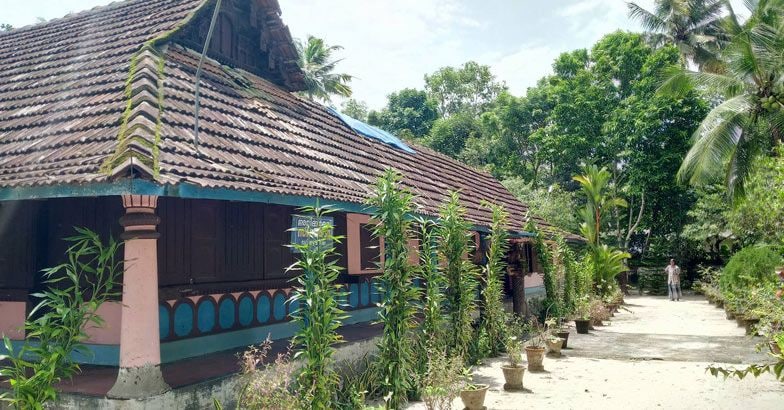
Thampi, born to Kerala Varma Thampan of Cherthala Naduvilel Kovilakam and Parvathy Pillai Thankachi of Andiyirakkathu Puthumana Ammaveedu in Karamana, Thiruvananthapuram, on 12 October, 1782, spent his growing up years in this sprawling mansion. His mother was the daughter of Makayiram Thirunal Ravi Varma, brother of the then Travancore King Karthika Thirunal Rama Varma. It was none other than the King himself who gave baby Ravi Varma the nickname Irayimman. The boy had an insatiable thirst for knowledge and was quick to master all that was taught in the Malayalam and Sanskrit language classes imparted by his father and Moothattu Sankaran Ilayathu. He penned his first Sanskrit verse at the age of 14 which he presented to the King. Though proud of his nephew who showed great promise, the King instructed Irayimman to learn more before taking up poetry. The young boy was promptly shifted to the palace and put under the tutelage of scholars. That he turned out to be a finely cut diamond is testified to by the subsequent history of Travancore and Malayalam literature. Karthika Thirunal also sanctioned grants and pension to Irayimman.
A musician and writer, Thampi found the inspiration for creativity in matters concerning the Travancore kingdom. The culture, history, and lifestyle of the times find reflection in his writings. The many ‘attakadha’ and palace descriptions gift us a graphic narrative on the Travancore kingdom, helping us piece together the history of the turbulent times. His writings chronicle landmark events like the renovation of Kulasekharamandapam - the ancient stone structure in Sree Padmanabhaswamy temple – during the reign of Swathi Thirunal, ‘murajapam’ and other associated rituals. The visits of foreign delegates to the kingdom, the birth of princes and other day-to-day affairs also get mentioned in his writings, making them a dossier on all things pertaining to the kingdom over more than half-a-century.
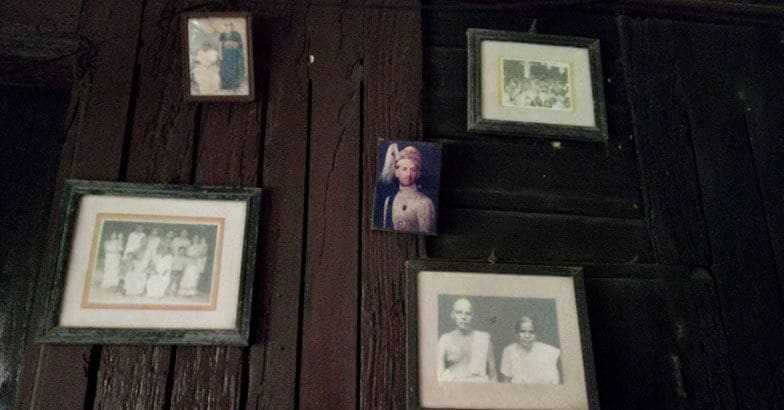
The famous ‘kummi’song, ‘Veeravirada kumara vibho,’ which remains an inevitable part of Thiruvathira to this day, was penned for the women folk of the palace. Omanathinkal kidavo, the lullaby which is considered his magnum opus, was written at the behest of Rani Gouri Lakshmi Bai. Swathi Thirunal developed a strong bond with Thampi and addressed him as ‘Thampi Ammavan’ (uncle).
Swathi Thirunal and Irayimman Thampi shared the passion for music and literature. The young king and the court poet indulged in many a literary exchanges. Their attempts to outdo the other in these friendly tests of wit and wordplay have resulted in some of the gems that enrich Malayalam literature and music. Thampi’s unorthodox and yet celebrated, ‘Prananadhan enikku nalkiya’, an erotic missive voicing the thoughts of a woman on the intimate moments spent with her lover, was a reply to Swathi Thirunal’s amorous padam ‘Panchabanan thannudaya’.
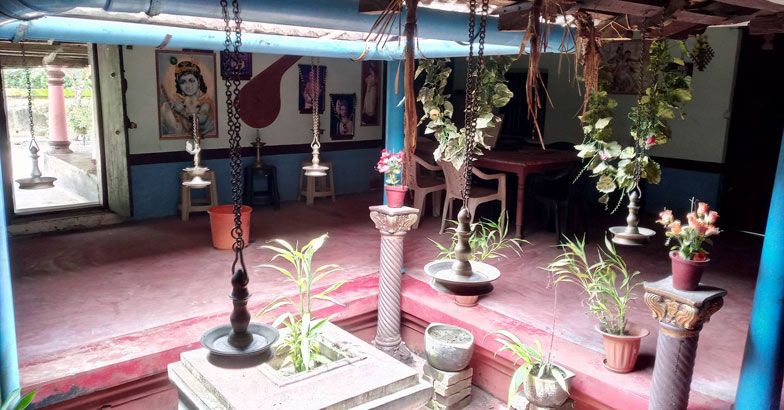
Thampi’s body of work includes 25 pieces in Sanskrit, five in Malayalam, five varnams, and 22 padams. Largely based on the themes of romance and devotion, his writings focused on the elucidation of feelings and emotions. One of his most famous kritis and a favorite of Thyagaraja Swamy, ‘Karuna cheyvan enthu’ was written down as he dictated it while bedridden. Stand-alone slokas, ‘murajapa pana’, ‘attakadhas’ like ‘subhadra haranam’, ‘navarathri prabandham’, ‘uthara swayamvaram’, ‘keechakavadham’, ‘dakshayagam’, kritis like ‘adimalarina thanne’ in Mukhari raga, ‘paradevathe’ in Thodi raga, and ‘pahimam giri thanaye’ in Saveri raga are part of the time-honoured legacy that he left behind.
Naduvilel kovilakam was built on the orders of King Uthram Thirunal who visited the Varanadu temple during the time of Thampi’s father. Though the family had been barely managing to make both ends meet, Thampi’s father was not one to be carried away by the windfall. The house was made as an ‘ettukettu’ on his request contrary to the ‘pathinarukettu’ that the King had ordered. Thampi spent his first 14 years in the mansion, after which he was taken to the palace, where he lived until his death in 1856 at the age of 74.
His daughter, Kunjukutty Thankachy, continued the legacy by excelling as an author of ‘attakadha’. But the subsequent generations had little interest in literary pursuits. The many branches of the family laid claims to the sprawling mansion and the large property at various times. The land was divided among relatives and sold several times over. On July 16, 1996, one party in the land dispute began demolishing the mansion. Rukmini Bai and her brother Krishnan, descendants in the fifth generation, objected to the demolition. She managed to obtain a court order in her favor through 12 years of legal battle. The unmarried Rukmini Bai left her job as a school teacher in Thiruvananthapuram to live in Naduvilel kovilakam.
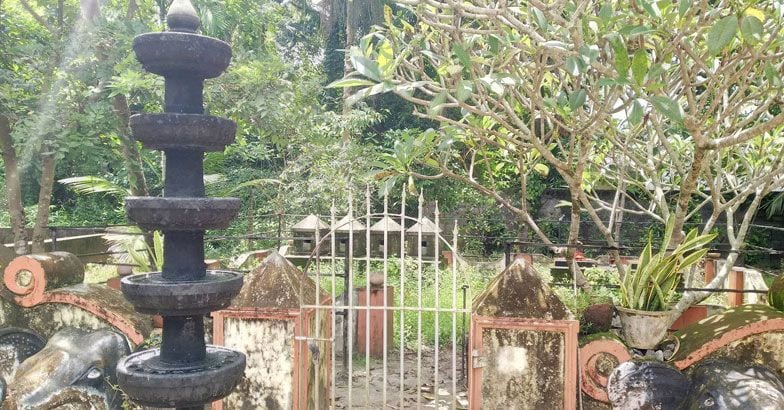
She also managed to garner public support in her mission to protect the old mansion and formed a trust. The portion that was demolished was reconstructed and the kovilakam was taken over by the government following her efforts. In 2006, the 40 cents of property and the mansion were declared as protected monuments under the Archeological Department. However, the family members retain their claims which the government should ensure they relinquish, say the nearby residents who are members of the trust. The grants usually sanctioned for the upkeep of protected monuments have never been received, they point out. So far, an amount of Rs 15 lakh is all that has been allowed which was utilized for constructing the fencing wall.
The trust has been spending the money needed for the maintenance which is costly since any work done on a protected monument has to comply with the standards set by the Archeological Department. Rukmini Bai’s brother Krishnan donated a sum. Recently the Archelogical Department sanctioned a small amount. Other than these meager amounts of money, nothing much has been forthcoming towards the upkeep of the three-centuries-old structure.
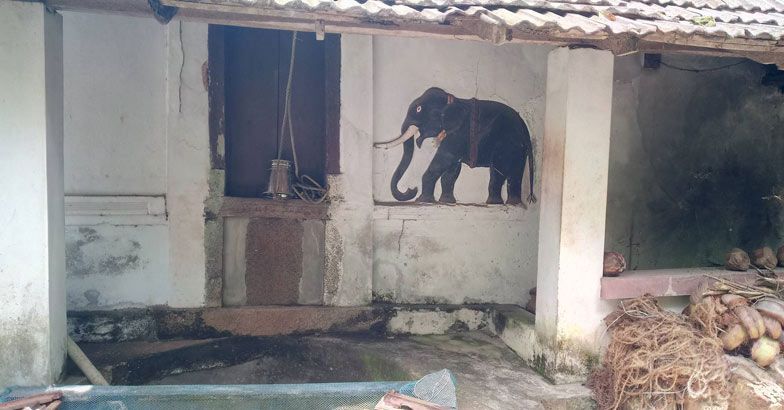
A distant relative of Rukmini Bai, Ambika, is now the caretaker of the kovilakam. She says that the music classes started in the premises using a fund allotted from the Block scarcely generates the money needed for the maintenance of the building. In 2016, then Finance Minister Thomas Issac had sanctioned a fund of Rs 25 lakh, but the money has not been received yet. The trust hopes that starting regular music lessons and a library, constructing an auditorium and an arch pointing the way to the monument will help in generating funds.
‘Omanathinkal kidavo’ found itself in the midst of an international controversy a few years ago. After being featured in the movie Life of Pi, it was shortlisted for the best original score and the claim was contested on the ground that the lullaby was in fact a word-by-word translation of the original Irayimman Thampi poem. Away from controversies, the living memory of the musician poet is struggling to live on.
Read more : Travel | Travel News | Beyond Kerala

